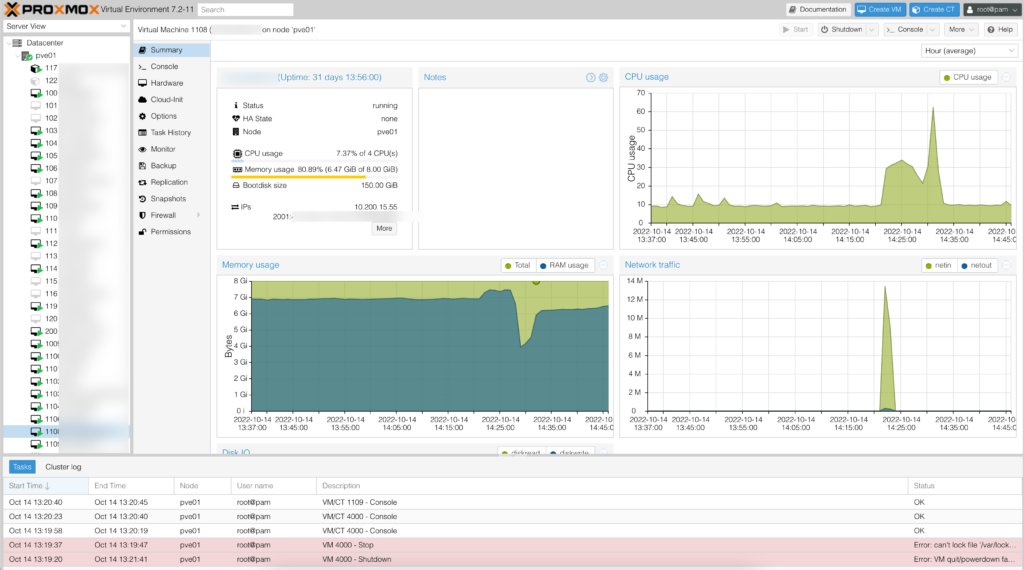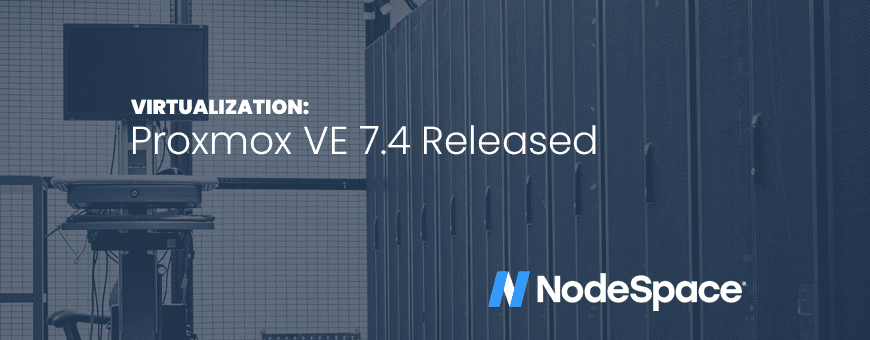A term you may have heard used quite a bit along with the term “cloud” is “private cloud”. What is a private cloud? Compared to the regular cloud, how does it compare? In this blog, we’ll look at private clouds and how you can benefit.
What is a private cloud?
You can think of it as a cloud where all the resources are internal (like in your company) or allocated to just one customer. This is the definition that Microsoft, IBM, Cloudflare, VMware, and Red Hat, just to name a few, all agree with. A hosting provider offering private cloud servers but only offering a single VPS is not truly offering a private cloud service. That is why you see our VPS service offerings labeled as VPS servers. Even in cloud providers like AWS, Azure, and DigitalOcean, any servers you spin up are still virtual private servers.
Compared to standard cloud offerings, private clouds can be slightly more expensive. Since you have all the resources available to you, you pay for those resources every month whether or not you’re using them all. But depending on what you’re doing, a private cloud can be cheaper. Many companies will launch servers in a public cloud like Azure or AWS and keep them in a single region. These servers are typically running things like their website, maybe some applications that they don’t want to host locally. The cost of this service may actually be higher than that of a private cloud solution depending on the number and size of VMs.
In a previous blog post (Cloudy with a chance of overages), I compared the costs of a 2 vCPU, 4 GB RAM VPS from us and AWS. I estimated that your monthly cost would be about double the cost of what we charge for the same thing. Using one of our Proxmox VE private cloud configurations, we lease the hardware to you for $150/month. You get 2×512 GB SSDs for VM storage and 64 GB of RAM. You also get 10 TB of bandwidth included. Knowing that, you’d be paying about $150 to AWS for just 3.4 virtual servers. Meanwhile, the private cloud server could host about 15 virtual machines of the same 2 vCPU, 4 GB RAM configuration. Proxmox can actually hold more, but I will discuss that below.
So you can see, if you’re planning on running one or two virtual machines, the cloud or even our VPS solution is fine. If you’re planning on running more or want more control, a private cloud is actually cheaper.
Open source private cloud
Our private cloud solution is powered by Proxmox VE. We choose to use Proxmox for a few reasons. First, we have been using Proxmox since 2012 so we have been working with it for a long time. When you work with something for a long time, you become very knowledgeable about it. Second, Proxmox is released under the AGPL v3 open source license. This means that the code is available for you to see, and even modify! You’re also able to use this software free of charge. Additionally, Proxmox sells subscriptions that give you access to official support from the developers and stable code repositories. You don’t have to purchase a subscription to use the software and all of it’s features, unlike VMware or Hyper-V. Third, Proxmox scales incredibly well – and this allows you to expand your private cloud!
Something that most cloud providers offer is automation. Thankfully, Proxmox also supports a couple different automation methods through it’s API. For example, there is a Terraform provider available (third-party) that can allow you to use Terraform so you can manage your private cloud as code, which is known as IaC – Infrastructure as Code. Another popular automation method is Ansible. Ansible can be used to automate all sorts of different things. It can manage your office’s network switches, manage configurations on computers and servers, deploy software, run updates, and more! So naturally, Proxmox is built into the core of Ansible. This means with a bit of configuration in Proxmox, you can deploy new VMs, turn VMs on and off, and even migrate VMs all with Ansible playbooks.
We have an example of Terraform in our Proxmox example repo. Feel free to fork this repo and contribute your own sample enhancements!
Powerful (and efficient) hosting with Proxmox
Here’s a screenshot of my own personal private cloud server I have hosted here. This is actually a customized configuration. I use HDD for servers I don’t mind being slower (or need block storage), and I have SSD storage available for servers that need to be faster, such as my Windows workstation VM (yes, my desktop is in the cloud!) and my personal web server.
You might notice that I have a lot of VMs running. 21 virtual machines and 1 LXC container. These all have various configurations, but the fact is, if it wasn’t for an amazing technology, I’d actually have to shut quite a few of these down. This is my favorite part of Proxmox, actually! It’s called KSM – Kernel Same-page Merging – and it helps you run a lot more than you should be able to.
This technology allows the host kernel to look at the memory and if there is memory that can be shared (such as multiple versions of the same operating system or software on those virtual machines running), it merges that memory allowing greater density.
On my server, you can see that KSM is sharing 22.94 GB. That means without KSM, I’d actually be using 116.97 GB of RAM. KSM gives me a little more room to run more. And this also isn’t everything. KSM really goes into high gear when the server uses 85% of it’s RAM. Then KSM gets even more aggressive on the merging.
I run a lot of AlmaLinux 8 servers. I counted 13 out of the 21. Since those are all running the same version of AlmaLinux, a lot of the initial KSM savings you see are from those servers.
If I was running all of this on a public cloud provider, my bill would be probably around $500-600 every month. My custom configuration costs me ~$220 monthly.
Even greater scale
If you decide that you want to build out a private cloud with NodeSpace, we’ll gladly help you! Whether it’s one server or 100 servers, we can help you design and implement a private cloud solution, powered by Proxmox VE, in our North Carolina data center. If you need a different location, we have providers in Virginia (Richmond & near Washington, D.C.), Dallas, Chicago, Las Vegas, and Los Angeles – and if you need somewhere else, we have enough connections we can make it happen!
Your private cloud solution is supported 24/7 by our expert technical team, including hardware replacement.
Just contact us for a free, no obligation, no high-pressure sales quote. Let us know your requirements and we’ll put together a private cloud that meets your needs.




